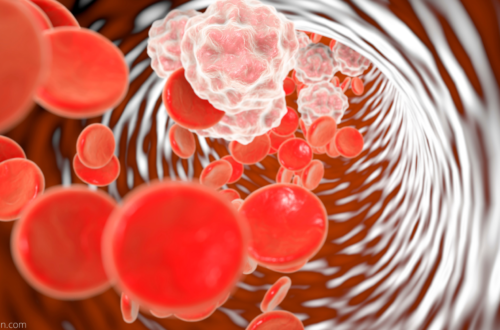
Can Lowering Cortisol Help You Get Rid of Belly Fat?
Did you know being stressed out or lack of sleep might be the reason for your big belly?
Many people struggle with excess belly fat, which can be challenging to get rid of. But what many people don’t know is that a specific hormone, cortisol, might be to blame for their belly.
Cortisol can cause your body to store extra fat around your middle section, the good news is that there are steps you can take to stabilize your cortisol levels and get rid of your belly fat.
As a general rule, finding ways to relax your body and mind can lower cortisol and help eliminate your belly fat. Meditation, a good night’s sleep, exercise, and practicing mindfulness every day can go a long way in managing cortisol levels and shrinking your belly.
Continue reading to find out more!
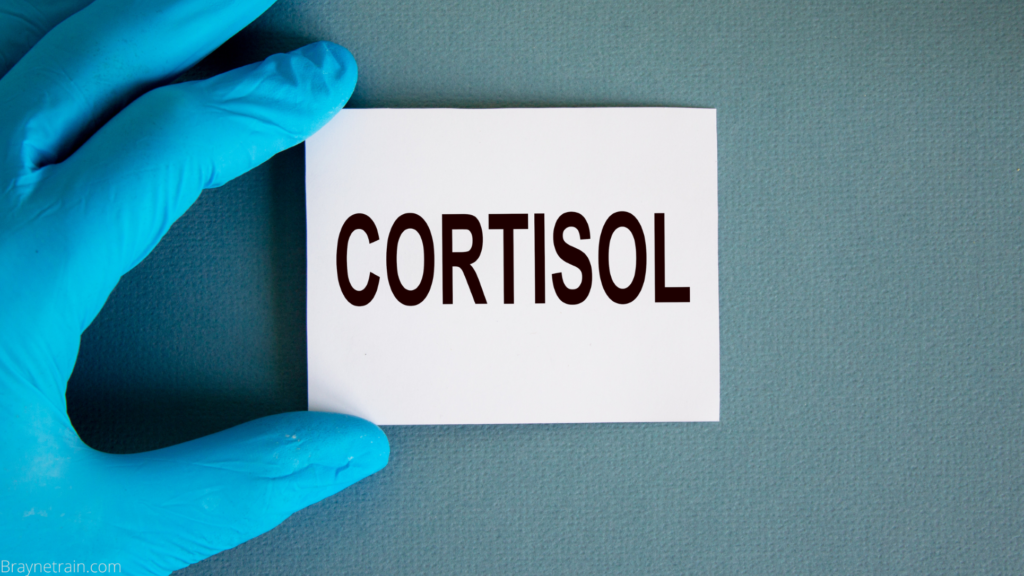
What is Cortisol?
Cortisol is a hormone produced by the adrenal glands in response to stress.
It is sometimes referred to as the “stress hormone” because it helps the body deal with stressful situations.
It’s essential to know cortisol is not harmful unless produced too much and too frequently.
Cortisol levels can elevate during physical or emotional stress, leading to several health problems.
For example, high cortisol levels can contribute to high blood pressure and heart disease. Cortisol can also cause weight gain, anxiety, and depression.

What are the Side Effects of High Cortisol?
Belly Fat:
High cortisol levels for an extended period can result in belly fat.
Cortisol increases lipoprotein lipase, which turns on the fat cells’ ability to store fat, making weight gain easier.
In addition, cortisol takes stored triglycerides and redistributes them as visceral body fat.
The human body has more cortisol receptors in the midsection, and stomach area. Therefore, high cortisol levels cause fat gain around the belly region.
That’s why people with high cortisol levels have large bellies and smaller legs.
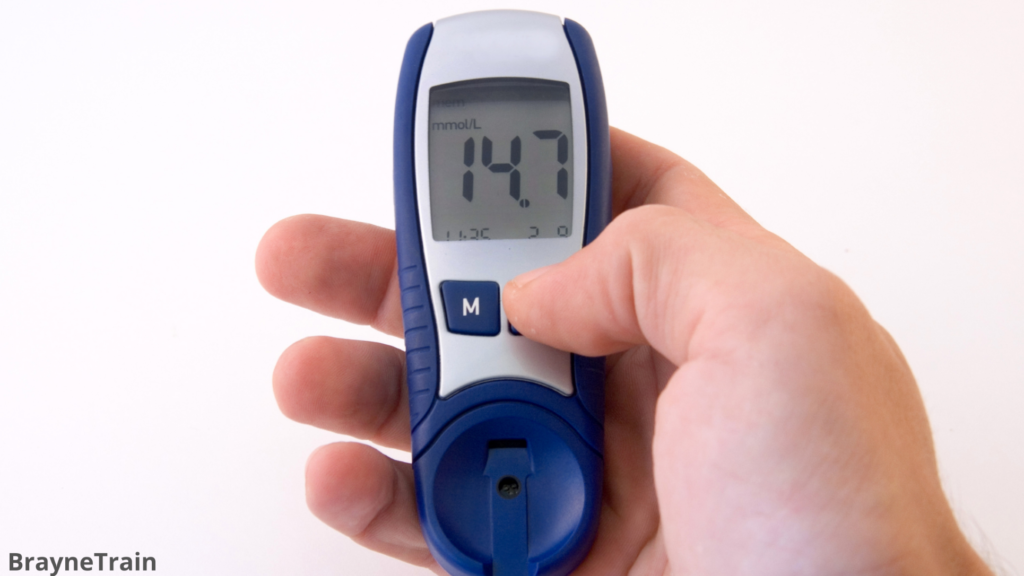
High Blood Sugar
When chronically high, cortisol levels can lead to insulin resistance, which means the body becomes less responsive to insulin.
Insulin resistance can cause blood sugar levels to rise because the body cannot effectively process glucose.
In addition, Insulin resistance causes increased hunger, overeating, and fast weight gain.
Symptoms of High Cortisol:
- Acne
- High blood pressure
- Anxiety
- Low resistance to stress (get agitated quickly)
- Allergies
- Asthma
- Anxiety
- Inflammation
- Digestive problem
- Alkaline blood PH
- Lower quality of sleep (waking up frequently)
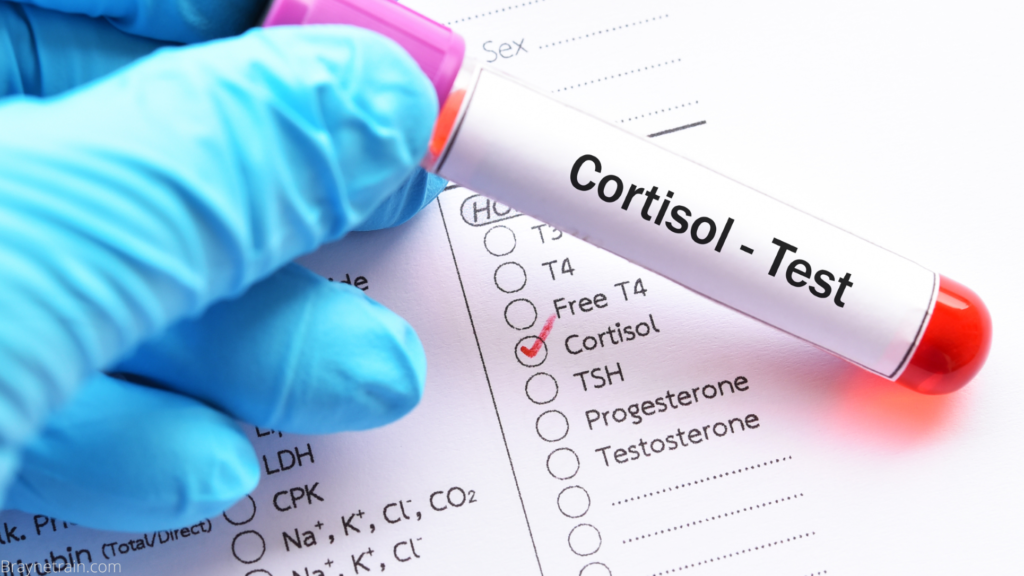
What Triggers Cortisol to increase?
- Lack of Sleep
- Lack of sleep is one of the most common triggers for a cortisol spike and belly fat gain.
- Stress & Anxiety
- When you feel stressed, your body goes into fight-or-flight mode, anxiety levels rise, and cortisol levels spike.
- While this response is beneficial in the short term, as it helps deal with stressful situations, it can be harmful if it becomes too frequent.
- Obesity
- Visceral fat can cause physical stress to the body and raise cortisol levels.
- Raised cortisol levels increase visceral fat.
- This becomes a vicious cycle of raised cortisol levels and fat gain, especially around the belly.
- Protein deficiency
- Studies have shown protein deficiency can lead to high cortisol levels.
- Magnesium deficiency
- Magnesium helps regulate levels of cortisol.
- When magnesium levels are low, cortisol levels increase.
- Magnesium deficiency has been linked to anxiety, depression, migraines, and even heart disease.
- Leaky gut:
- Inflammation in the Gut can lead to raised cortisol levels.
- Grains and Gluten are significant contributors to leaky gut and gut inflammation.
To learn more about anti-inflammation diets, click here.
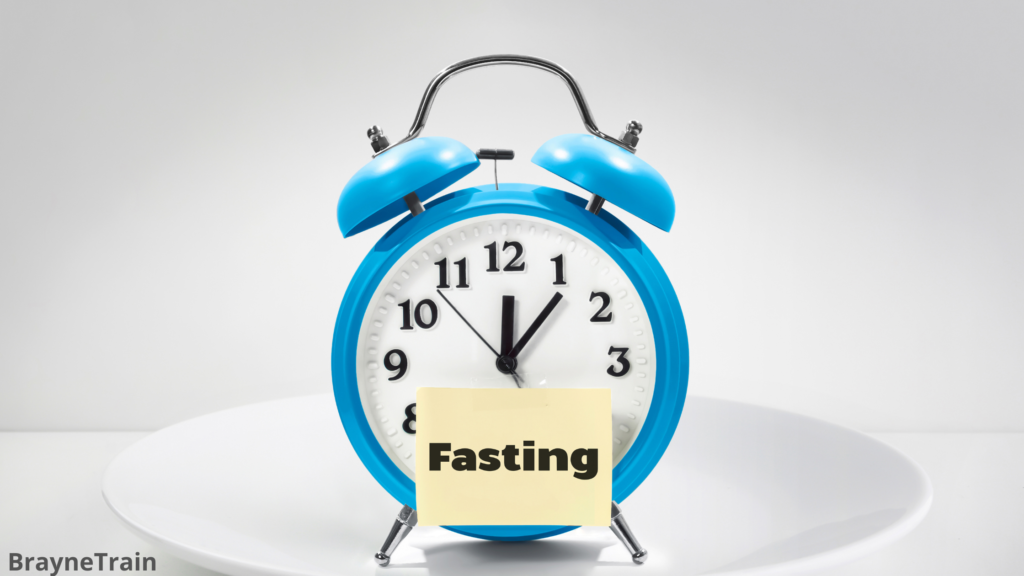
How do you Reduce Cortisol Levels?
Fasting
Fasting helps lower cortisol levels by giving the body a break from digesting food; it allows the body to relax and reduce the amount of cortisol produced.
In addition, fasting helps improve the quality of sleep, which can further reduce cortisol levels.
Intermittent fasting has been shown to improve mood and reduce anxiety, which can contribute to lower cortisol and reduce belly fat.
To learn more about different ways of fasting, click here.

Sleep
A good night’s sleep helps lower cortisol levels and reduces stress and anxiety throughout the day.
When you sleep, you body has a chance to rest and recover from the day’s stresses. This helps lower cortisol levels and improve overall health.
The quality of sleep is much more important than the quantity of sleep.
To learn more about creating a nightly routine for better sleep, click here.

Vitamin C
Vitamin C is a well-known antioxidant that helps protect cells from damage.
In addition, Vitamin C plays a role in regulating stress hormones. In particular, vitamin C has been shown to help lower cortisol levels and help reduce belly fat.

Meditation
A study published in the Journal of Behavioral Medicine indicated that meditation significantly lowered cortisol levels in a group of individuals who were suffering from stress-related disorders.
The study participants who meditated had their cortisol levels decrease nearly 30%.
Other studies have also shown similar results, indicating that meditation effectively lowers cortisol levels and helps reduce belly fat as a result.
To learn about meditation and how to start meditating, click here.
Takeaway
Cortisol is a hormone that’s released during stress. Too much cortisol can have serious negative consequences on your health, including weight gain, high blood pressure, and even heart disease. It’s therefore essential to do what you can to keep your cortisol levels stable. The best way to do so is by finding ways to reduce your stress and anxiety. Try the tips and tricks we provided you in this post, and you will soon feel more relaxed and realize your belly fat is melting away. Thank you for reading!
References
Ottosson M, Vikman-Adolfsson K, Enerbäck S, Olivecrona G, Björntorp P. The effects of cortisol on the regulation of lipoprotein lipase activity in human adipose tissue. J Clin Endocrinol Metab. 1994 Sep;79(3):820-5. doi: 10.1210/jcem.79.3.8077367. PMID: 8077367.
Leproult R, Copinschi G, Buxton O, Van Cauter E. Sleep loss results in an elevation of cortisol levels the next evening. Sleep. 1997 Oct;20(10):865-70. PMID: 9415946.
Turakitwanakan W, Mekseepralard C, Busarakumtragul P. Effects of mindfulness meditation on serum cortisol of medical students. J Med Assoc Thai. 2013 Jan;96 Suppl 1:S90-5. PMID: 23724462.
Sartori SB, Whittle N, Hetzenauer A, Singewald N. Magnesium deficiency induces anxiety and HPA axis dysregulation: modulation by therapeutic drug treatment. Neuropharmacology. 2012 Jan;62(1):304-12. doi: 10.1016/j.neuropharm.2011.07.027. Epub 2011 Aug 4. PMID: 21835188; PMCID: PMC3198864.
Espelund U, Hansen TK, Højlund K, Beck-Nielsen H, Clausen JT, Hansen BS, Orskov H, Jørgensen JO, Frystyk J. Fasting unmasks a strong inverse association between ghrelin and cortisol in serum: studies in obese and normal-weight subjects. J Clin Endocrinol Metab. 2005 Feb;90(2):741-6. doi: 10.1210/jc.2004-0604. Epub 2004 Nov 2. PMID:


